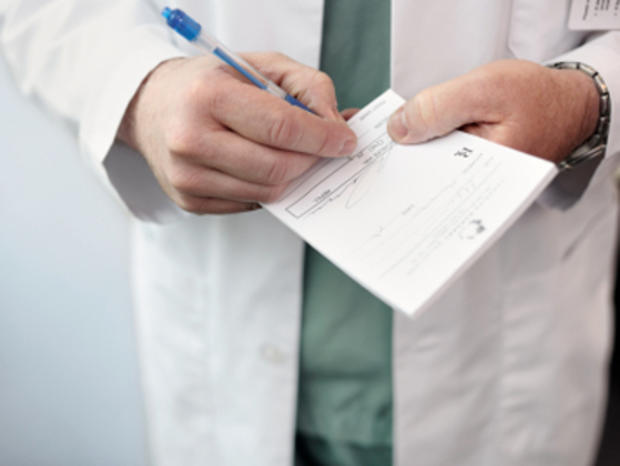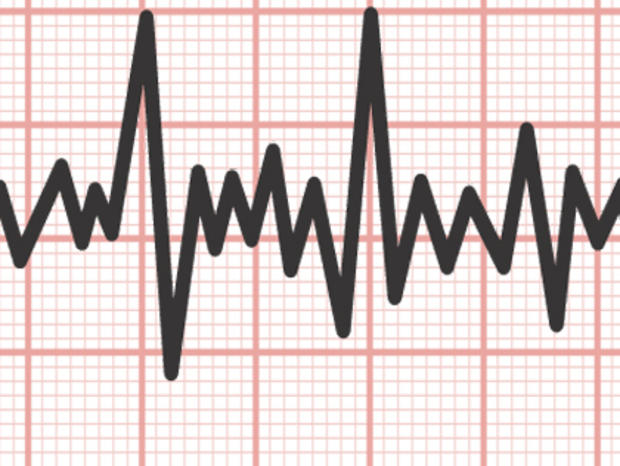Risky Mix: How Drugstore Remedies And Foods Affect Your Heart Medication
It's no secret that certain drugs can interact with each other, sometimes with serious health consequences. In fact, physicians and pharmacies regularly review patient prescriptions to avoid such issues. What you may not know is that certain everyday foods and over-the-counter (OTC) remedies can also interact with cardiovascular medications, sometimes with serious results.
How Medications Collide with Other Substances
Medications taken orally are processed in the stomach but are typically not fully absorbed until they reach the small intestine, which is more than 20 feet long. Enzymes break down the drugs as they travel through the gastrointestinal tract.
During this process, drugs taken orally have contact with foods, beverages, and any remedies or supplements taken in the form of pills or capsules. This is where the process can get a bit tricky. "Drug interactions can occur when two or more drugs react with each other or when drugs react with certain foods or beverages," says Eli V. Gelfand, MD, Director of Ambulatory Cardiology at Beth Israel Deaconess Medical Center's Cardiovascular Institute. "Additional drug interactions can occur if you have an existing health condition that makes certain medications, herbs or foods potentially harmful." The effect of these interactions can sometimes reduce the amount of medicine that gets absorbed, increase the action of the drug or cause harmful physical reactions.
When Herbal Remedies are Risky Business
Fifty percent or more American adults regularly use dietary supplements, according to the Office of Dietary Supplements in the National Institutes of Health. These supplements include herbs, vitamins, minerals or other substances taken to supplement the diet. Despite the common use of these supplements, many have the potential to cause negative side effects when paired with certain medicines or health issues.
"Dietary supplements like herbs are often not standardized and are not regulated as tightly as are prescription drugs," says Gelfand. "And while labels for supplements often include the word "natural," there's no guarantee that they are safe or advisable for everyone to take." A report published in the February 9, 2010, issue of the Journal of the American College of Cardiology found that many herbs can interact with heart disease medications, increasing the risk for bleeding or irregular heartbeat (cardiac arrhythmias). The report noted that the effect of some interactions between herbs and drugs could be seen when conducting tests for blood clotting and liver enzymes, as well as in electrocardiogram results. Here are some examples of dietary supplements and the potential adverse effect they can have for those with cardiovascular disease:
Aloe Vera
Sometimes taken orally to treat digestive issues, aloe vera can be toxic in certain doses. It can cause blood's potassium level to drop, which can lead to heart rhythm problems for those taking the drug Digoxin, often used to treat congestive heart failure or lower the heart rate for patients with atrial fibrillation.
Black Cohosh
Used to relieve menopausal symptoms, black cohosh can lower blood pressure when taken at high doses.
Coenzyme Q-10 (CoQ10)
Sometimes taken for its supposed protective effects against cardiovascular disease, CoQ10 can decrease the ability of Coumadin (warfarin) to thin the blood.
Echinacea
Taken to boost immunity, echinacea can increase the risk of liver damage when taken with drugs to lower cholesterol such as statin medications, niacin and fibrates.
Garlic, Ginger, Ginkgo Biloba, Goldenseal and Vitamin E
Each of these supplements can increase the risk of bleeding for those taking blood thinning medications like Coumadin or aspirin.
Ginseng
Used to improve mental capabilities, ginseng can interfere with warfarin's ability to thin the blood. In addition, ginseng can enhance the bleeding effects of aspirin, and anti-inflammation drugs such as ibuprofen (Advil), naproxen (Aleve), and ketoprofen (Orudis KT).
Nettle
Reputed to prevent urinary tract infections, kidney and bladder stones, nettle acts as a mild diuretic. This means that nettle can increase the risk of dehydration for those who take Lasix (furosemide), a drug used to treat fluid retention and high blood pressure, frequently taken by those with congestive heart failure. Nettle may decrease the effectiveness of warfarin or other blood thinners and, if taken with medications for high blood pressure, may cause your blood pressure to go too low.
St. John's Wort
Often touted as treatment for depression, St. John's Wort can reduce the effectiveness of medications such as digoxin, used to treat congestive heart failure and atrial fibrillation, and the cholesterol-lowering drugs lovastatin and simvastatin "This herb is an activator of an important group of liver enzymes, which means it can increase the breakdown of important medications in the blood, before they've had the chance to work for you," explains Gelfand. "St. John's Wort can also enhance the action of the blood-thinning drug clopidogrel [Plavix], which could cause potential bleeding."
Use Caution with These Over-the-Counter Remedies
Over-the-counter medicines (OTC) are often viewed as fairly benign compared to prescription meds, but they can still cause serious health risks due to interactions from taking the wrong combination of drugs. There are several OTC drugs in particular that may spell trouble for those with cardiovascular health issues:
Antacids
Antacids are medications that increase the pH balance in the stomach to relieve symptoms of acid reflux/dyspepsia. Unfortunately, antacids can interfere with the absorption of many other medications, including warfarin. In addition, some antacids contain sodium (salt), which can cause fluid retention and increase blood pressure — both particularly risky for heart failure patients or others with cardiovascular disease. "Large doses of antacids can interfere with the absorption of many medications, including warfarin," says Gelfand. "If a patient informs their doctor and becomes accustomed to a stable dose of antacid medications, they can often take these safely. It is important to collaborate with your doctor first, however. If nothing else, the frequent need for antacids may be a sign of a more serious gastrointestinal problem that needs to be addressed promptly."
Decongestants
You may not be aware that decongestants, such as Sudafed®, Drixoral® or Dimetapp®, can raise blood pressure. Most products that contain pseudoephedrine or ephedrine constrict the blood vessels — this is how they help to ease breathing through the nasal passages. They can also increase the heart rate. "If your blood pressure is under excellent control, occasional use of a decongestant for severe symptoms is reasonable," says Gelfand. "But the best option for those with hypertension is to use nasal spray or drops, or saline rinses for a stuffy nose. If there is an allergic component to the patient's respiratory symptoms, an antihistamine medication that does not contain a decongestant, such as Benadryl®, Zyrtec®, Claritin® or Allegra®, is often a good idea."
Non-Steroidal Anti-Inflammatory Drugs (NSAIDS)
Patients with heart failure should generally avoid taking NSAIDS like ibuprofen (Advil®, Motrin®), Naproxen (Aleve®), cyclo-oxygenase inhibitors (COX-2s) and aspirin. Often used to combat pain and inflammation, these drugs can cause your body to retain fluid and can cause arteries to constrict, worsening fluid build-up and high blood pressure. Research has shown a direct connection between taking NSAIDS and a greater risk for hospitalization or even death for patients with congestive heart failure. A study conducted in Canada found that, in a group of 45,000 elderly Ontarians, patients taking COX-2s experienced an 80 percent increase in hospital admissions for heart failure and those taking other NSAIDS had a 40 percent increase in admissions. Due to its blood-thinning properties, aspirin is routinely taken by patients with symptoms of heart disease. Low dose aspirin may have benefits for patients who have experienced a recent heart attack or who have other cardiovascular risk factors. "Aspirin is a blood thinner — and any blood thinner could increase the risk of bleeding, particularly for patients who already take other anticoagulant medications," according to Gelfand. "It's a very good idea to ask your cardiologist to explain exactly why you are taking aspirin and whether it is safe for you to ever stop aspirin for a few days; for example, prior to surgery. For patients with heart stents, this is an especially important conversation to have."
Meals and Meds that Make Bad Combos
We've gone through the aisles of the drugstore dangers for heart patients, but there's one last area to review — food. Certain medication and food/beverage combinations can spell trouble for those taking drugs for cardiovascular issues. Here are the main culprits:
Avocado
Avocado has mild blood-thinning properties that can intensify the effect of warfarin or other anticoagulants. It is safe to eat small amounts of avocado, however.
Greens with Vitamin K
Since warfarin works by interacting with vitamin K in your body, any foods high in vitamin K can decrease the effect of warfarin. Foods that are rich in vitamin K include kale, spinach, broccoli, brussel sprouts and lettuce. Gelfand stresses that complete abstinence of foods containing vitamin K is not necessary. He recommends that his patients know the list of foods high in vitamin K and enjoy them in moderation, trying to keep the amount of these foods more or less constant from day to day. He then adjusts the dose of warfarin as appropriate for each individual patient.
Grapefruit Juice
By blocking enzymes that metabolize certain drugs, grapefruit juice can cause more of the medication to be left behind and absorbed by the body. These higher levels can also increase your risk of suffering from side effects. For this reason, grapefruit juice should not be taken with some medications that control arrhythmia (irregular heartbeat) or lower cholesterol.
Green Tea
Green tea contains vitamin K, which can decrease the effect of warfarin.
Licorice
Natural, black licorice can interfere with the excretion of potassium and raise blood pressure. For someone taking Lanoxin (digoxin) to treat congestive heart failure and abnormal heart rhythms, licorice may increase the risk for Lanoxin toxicity. Licorice can also decrease the effects of blood pressure medications or diuretic drugs.
Alcohol
While small amounts of alcohol may be beneficial for cardiovascular health over the long term, it can also cause problems for cardiovascular patients by raising blood pressure, increasing the risk of bleeding and contributing to the development of arrhythmia.
Above content provided by the CardioVascular Institute at Beth Israel Deaconess Medical Center. For advice about your medical care, consult your doctor.
Posted: January 2013





